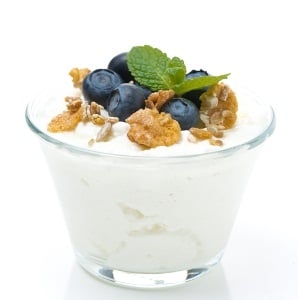
Imagine life without yoghurt, vinegar, cheese, wine or beer (or amasi in South Africa). These and many more foods and beverages would not be part of our lives without the process of fermentation.
Fermentation is essentially a process where organic substances are broken down into simpler substances, like for example the breakdown of sugar into alcohol. It is basically the beginning of the process of putrefaction, but instead of letting the substance decay completely, the process is controlled and halted at just the right time. Think of wine; if the fermentation process is not stopped in time, the end product could be vinegar, or worse.
Read: Red wine fights diabetes, obesity
Fermenting foods is by no means a new process and there is evidence that our ancestors made bread, beer and wine at least 8 000 years ago. It also very widespread and most cultures on earth have enjoyed fermented foods like sauerkraut in some form or another for millennia.
Metchnikoff and Bulgarian yoghurt
The fact that so many of us enjoy our daily tub of yoghurt is largely thanks to the Russian scientist Ilya Metchnikoff (1845 – 1915).
Metchnikoff observed that certain communities in Bulgaria and the Russian Steppes who consumed milk fermented by lactic-acid bacteria were unusually long lived. He proposed that consuming fermented milk products "seeds" the intestines with lactic-acid bacteria, decreasing the intestinal pH and suppressing the growth of harmful bacteria.
Metchnikoff’s theory was that ageing is caused by putrefactive microbes that produce toxic substances in the intestine. These compounds are responsible for what he called "intestinal auto-intoxication", which cause the physical changes associated with old age.
Scientists maintain that B. lactis bulgaricus (hence the name Bulgarian yoghurt) changes the intestinal flora, which limits auto-intoxication and the subsequent development of degenerative diseases.
Read: Yoghurt lowers risk of high blood pressure
Lactobacillus Bulgaricus is widely used to sour milk (producing yogurt) and often given as a digestive remedy. It can also be taken in tablet form, although eating yoghurt is more effective.
Kefir
Another well known fermented milk product with great health benefits is kefir.
Kefir originated in the Caucasus Mountains between the Black and Caspian seas, and is now enjoyed worldwide. It is usually made from the milk of cows, goats, or sheep and is slightly sour and bubbly because of the fermentation caused by the bacteria and yeast that make up the “grains” used to culture the milk. The different kinds of microbiota present in kefir make it one of the best probiotic foods one can eat.
Read: The benefits of probiotics
Kefir helps with gastrointestinal complaints and has been reported to improve lactose intolerance. It also has antifungal properties and may reduce the intestinal inflammatory response in cases of colitis.
Kimchee
Kimchee is Korea’s national dish, and its main ingredients are usually cabbage, radish or cucumber. It is spiced with peppers and traditionally fermented in jars underground. Traditionally kimchee has a sour, spicy taste, but there are hundreds of different kinds with different tastes. The most common variety is spicy cabbage kimchee.
In Korea kimchee is served at every meal and the average Korean consumes more than 20kg per year. Kimchee is full of vitamins, but its main health benefit lies in the healthy bacteria (lactobacilli) it contains. The lactobacilli support digestion and may prevent intestinal problems like Candida overgrowth. Further good news is that fermented cabbage may help to prevent cancer.
Amasi
Amasi in Zulu and “maas” in Afrikaans, is a fermented milk product that tastes a lot like yoghurt. It is consumed widely in South Africa. Traditionally it is made from unpasteurised milk which is left in a calabash until it ferments. Nowadays it is made with a culture and sold in supermarkets.
Amasi contains a large amount of lactic acid bacteria which is a very effective probiotic and may even kill E. coli bacteria.
Read: Another prebiotic added to the list
‘Fermenting bible’
Our forefathers didn’t have fridges, deep freezes, supermarkets of canned foods, so they had to find other ways to preserve their food. The most effective way to prevent food from spoiling was through fermentation.
Because of modern developments, fermentation is no longer the only way of preserving food, with the result that we are no longer reaping the health benefits of eating fermented foods to the same extent as our forefathers.
Read: Green communities
In 2003, however, American Sandor Katz published a book “Wild Fermentation”, which Newsweek called “the fermenting bible”. In the book he shares his experience with home fermentation and calls himself a “fermentation revivalist”.
Since then, Katz has “taught hundreds of workshops demystifying fermentation, empowering people to reclaim this important transformational process in their kitchens”. His latest book is called “The Art of Fermentation” and is a New York Times bestseller.
In a nutshell
- Fermented foods destroy and inhibit the growth of pathogenic bacteria. Many pathogenic forms of bacteria are sensitive to acidic environments, and the lactic acid in fermented foods is capable of killing many of these “bugs”.
- Fermented foods help protect the stomach. Fermented foods ease digestive discomfort by increasing stomach acidity when necessary and protect the lining of the stomach and intestines if there is too much acid.
- Fermented foods encourage the production acetylcholine. Acetylcholine is a neurotransmitter that helps to increase the movement of the bowel, alleviating constipation problems. It also encourages the release of digestive juices and enzymes.
- Fermented foods are good for diabetics. Besides improving pancreatic function, the carbohydrates in fermented foods have already been broken down and, unlike normal carbs, place much less of a burden on the pancreas.
Read more:
Probiotic yoghurts affect your gut
Smooth, smoother, smoothie
Your complete guide to probiotics




 Publications
Publications
 Partners
Partners










